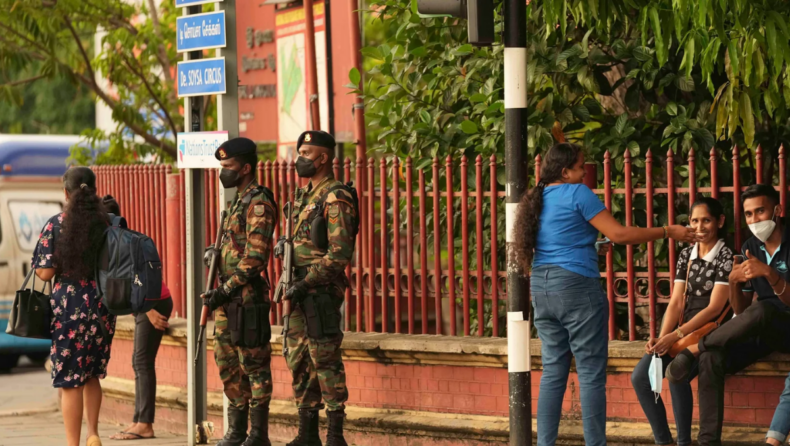Country curfew and social media blackout in Sri Lanka after the nation was hit by an economic crisis
The country of Sri Lanka observed a nationwide curfew on Saturday, 2nd April 2002. It was imposed from 6 PM on Saturday to 6 AM on Sunday. It had announced a public emergency on Friday. The curfew also saw a countrywide social media blackout amidst distressed citizens protesting against the Government.
The decision was made regarding one of the worst economic crises seen in the country. It witnessed a severe shortage of essential goods. The inflation in the country was recorded at an all-time high.
Sri Lanka was observed in a foreign exchange dip. The same also led to a crunch in the supply of essential goods. There were endless lines for access to essential goods. Several distressed citizens protested blaming the mismanagement of the government.
The protestors claimed that they managed the resources and economy of the country poorly. There was also a violent gathering around the residence of Gotabaya Rajapaksa. The mob assembled around the house on Thursday.
The situation witnessed vehicles being set on fire and the mob turning frantic. The reports claimed that local authorities used tear gas shells and water cannons to moderate the situation. A handful of protestors were also detained.
A public emergency was imposed regarding the ongoing situation in the country. A special Gazette was issued to notify the country of the same. The curfew was imposed on Saturday to curb the violence.
In addition to this, a social media blackout was also observed by Netblocks, a watchdog organization. It was imposed to keep a check on information dissemination. Sri Lankan soldiers were deployed in Colombo on 2nd April 2022. The country was under a curfew for 13 hours a day. It was in place from 6 PM on Saturday to 6 AM on Monday.
Despite the decision of the Government, the citizens took to peaceful protests on Saturday. Mass anti-government protests were also turned to by social media posts on Sunday. The worsening crunch of food, medicine, crippling power cuts and fuel has agitated the citizens to a large level.
The citizens were banned from social media temporarily. This was after the Ministry of Defense requested the same from the Telecommunications Regulatory Commission. Applications such as Facebook, Instagram, WhatsApp, Twitter, and YouTube were not accessible since Saturday.
The President, Gotabaya Rajapaksa, gave the media his statement that the foreign exchange crisis was not the result of his actions. He claimed that the Pandemic had largely driven the country to this.
The income from island Tourism and inward remittances had wavered. Furthermore, he also added, “Whereas I am of the opinion that because of a public emergency in Sri Lanka it is expedient to do so in the interests of public security, the protection of public order and the maintenance of supplies and services essential to the life of the community,”
On the other hand, the lawyers of the country did not completely agree with the decision of the Government. They stated that the police had unquestionable powers to detain anybody who took to illegal assembly.
India had transferred 40,000 metric tonnes worth of diesel consignment to Sri Lanka. This took place on Saturday. The consignment aimed to moderate the severity of power cuts in the country. Furthermore, a $1 billion credit line was decided by Delhi for Sri Lanka. This was in addition to the $500 billion credit line that was made to the country in February to provide financial assistance during this economic crisis.
Published By : Revathy G Sanal
Edited By : Subbuthai Padma













